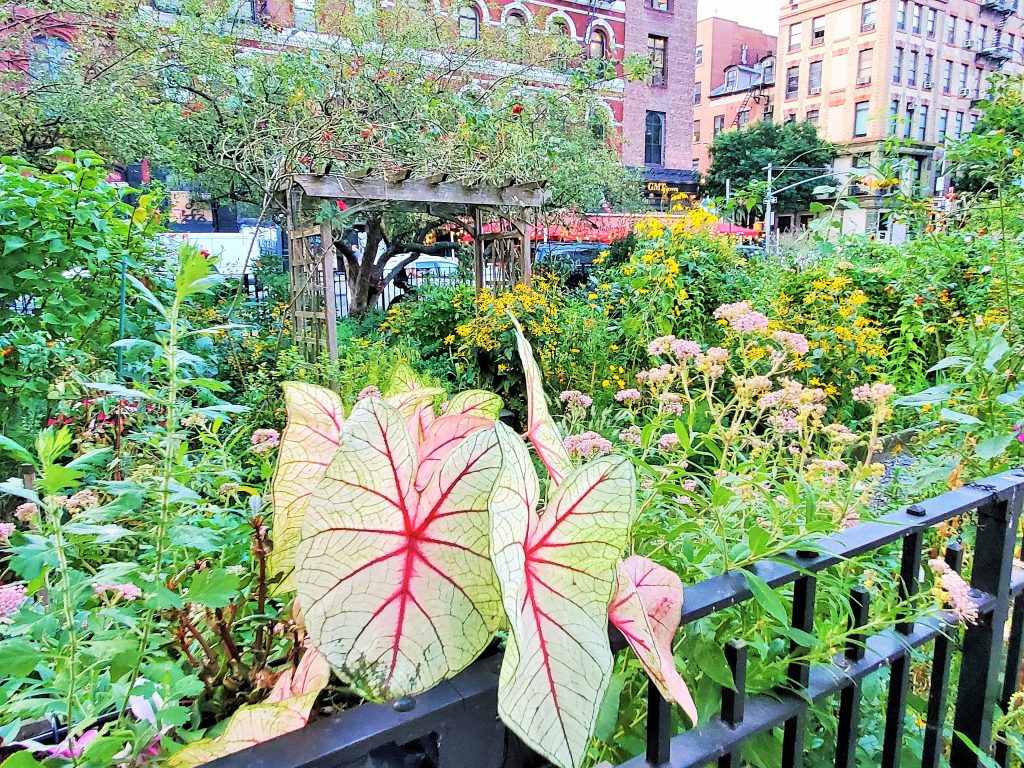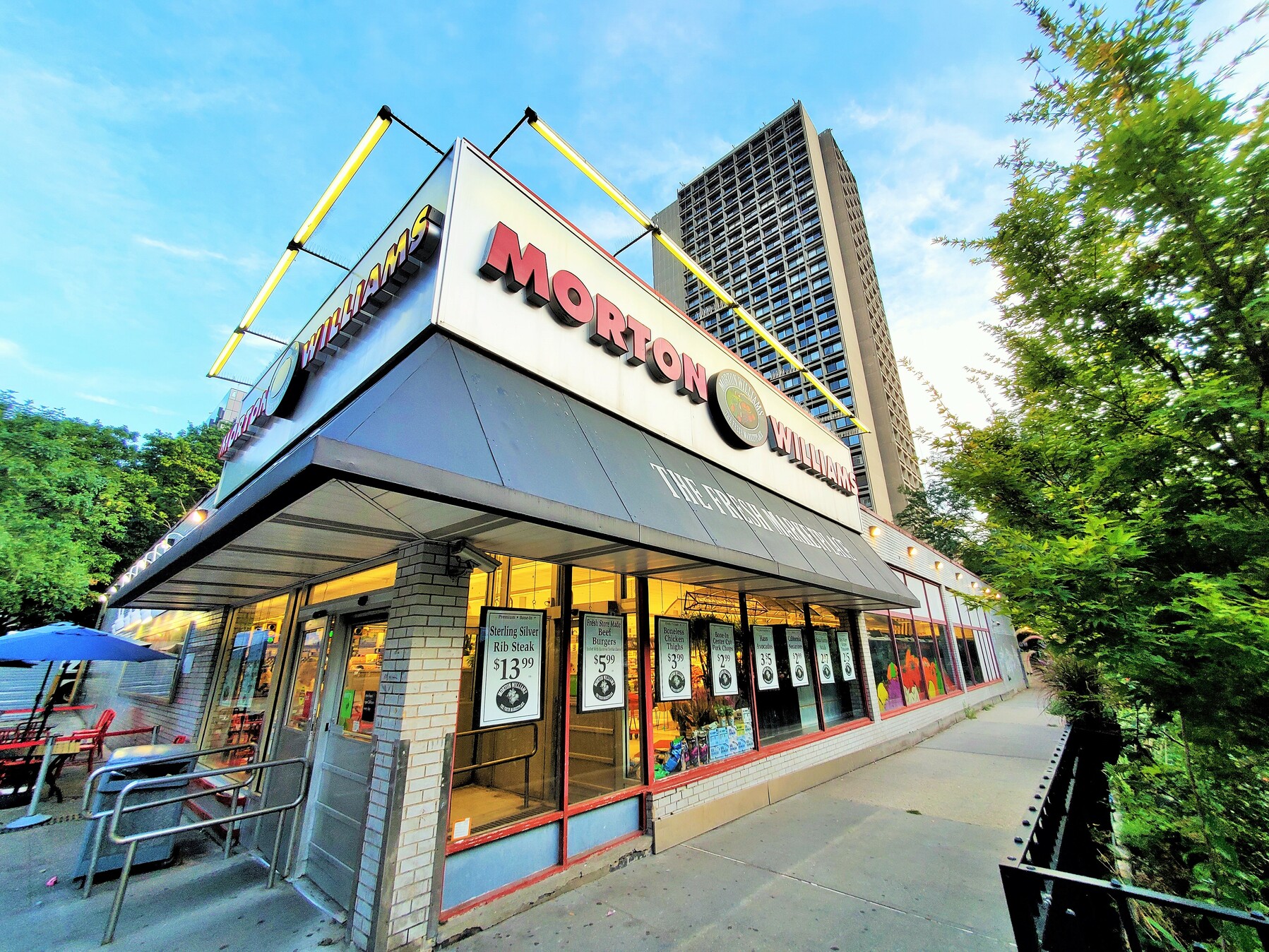BY ALAN GERSON AND JUDITH CALLET |
Dear New York University and School Construction Authority,
You each have blamed each other for the university’s omission of promised space reserved for a supermarket in its new Mercer Street building. Rather than finger pointing, we ask you both to work with us — your community and constituents — to reach an outcome which serves all needs.
To that end, we ask the N.Y.U. administration to meet with S.O.S., the grassroots Save our Supermarket organization, representing the united cross section of your community, including your faculty and students, as demonstrated by petitions and participation, to explore possibilities. We ask that the S.C.A. refrain from exercising any option it may have to acquire the supermarket site — if it decides that demographics warrant a fourth elementary school in an area already served by P.S. 41, P.S. 3 and the new Hudson Square school — in order to thoroughly explore alternative school sites.
Throughout the rezoning process that gave S.C.A. this option, N.Y.U.’s administration repeatedly promised on the record that, in exchange for the university’s expansion that the rezoning allowed, N.Y.U. would relocate the Morton Williams supermarket now on LaGuardia Place and Bleecker Street to its new Mercer Street building. The city repeatedly affirmed this arrangement. Yet, when the Department of City Planning released the restrictive declaration, that condition mysteriously disappeared without any notice to the community, the community board or local elected officials.
There are ample grounds for legal action.
Community Board 2 predicated its support for S.C.A.’s option on N.Y.U.’s and the city’s guarantee of supermarket relocation and on the city’s representation that it would create a special-needs school at the market site. The city has subsequently stated that any school it creates will not be dedicated to special needs. These and other irregularities provide ample grounds for legal action. However, rather than protract an acrimonious dispute with litigation, we can all work together to come up with a win-win-win outcome.
Co-location of the school and supermarket does not provide an acceptable outcome. It will drive up school construction costs, lengthen construction time — inflicting a construction noise and air disaster on neighbors, while closing the supermarket for at least three years — a lifetime to those dependent on the supermarket. It would also destroy the adjoining, beloved, award-winning LaGuardia Corner Community Garden, an environmental oasis in our neighborhood. At a time when the city and university have supposedly recognized the critical importance of green space, neither of them should even consider destroying this garden.

The win-win-win outcome lies clearly in sight: N.Y.U., instead of its promised Mercer Street space for the supermarket, can provide space for a school in one of its new Lafayette Street properties. N.Y.U.’s Education students and faculty, as well as the school, could benefit from a university connection to the school. N.Y.U. would also continue to receive supermarket rent it would forfeit if S.C.A. takes the site. The community would continue to benefit from its essential, only, full-service supermarket, as well as the garden. The city, including the S.C.A., which is ultimately responsible for the impacts of its zoning policies, in the best tradition of good government, can and should engender this outcome.
With everything else going on in the world, it might strike some as a skewed priority to focus on a supermarket. But, food remains important. If the S.C.A. eliminates the community’s only full-service supermarket, where once there were three, N.Y.U. and the city will have created another food desert. This loss will have a deleterious impact on all local residents and small businesses, but especially on elderly or disabled community members who have no alternative. During storms and pandemics, the supermarket provided delivery to the homebound and sick. Its union employees, who will lose jobs if the market is displaced, every day live up to their descriptions as essential workers. The city should now live up to its attribution of these workers and this service as essential.
Building a better world starts with community, and caring about individual community member needs. It starts with integrity and living up to promises and one’s word. It includes good government and good institutional conduct at the grassroots level. Building a better world includes strengthening not obliterating community ties, such as those forged in a community supermarket where workers know so many residents by name and where community members bump into one another. Let us not create a school with community-be-damned actions and deceits that teach students the wrong lessons of poor conduct at a time when we need community more than ever.
Gerson and Callet are co-chairpersons, Save Our Supermarket.


As a born-and-bred 67-year resident of Greenwich Village, past member of Community Board 2 and a recently retired employee of the SCA (Director of External Affairs), I would concur with much of what my friends state in their letter — especially with the statement that all should “come together to reach an outcome to serve all of our needs” — and offer a suggestion.
In seeking such a solution, let’s start with some inescapable facts:
1) The site in question is small. Constructing anything there would be difficult at best and whatever was constructed would never be all that it should. As with other small, recently built schools, the community would object to the lack of certain amenities that many feel are necessities.
2) The community garden would be the first casualty of construction.
3) The NYU community reaps as much benefit from the existence of the supermarket as does the greater Greenwich Village community.
4) Should the City decide not to exercise the school option, NYU would be obligated to construct a new building and provide space for a small CBO (community-based organization). Thereby assuming the obligation and cost of construction as well as maintenance.
5) The SCA/City has had the ability to exercise the option for many years and has not done so for a very simple reason: There is no need for a school in this area at this time.
That said, the solution seems simple and perhaps blasphemous: Tear up the agreement. The community and City give up something it doesn’t need and can’t afford at this time — a small school with shared space. The University gives up a few feet of office space, which it would also need to share.
On the flip side, should they decide to tear up the document, all parties wold continue to benefit from the supermarket. The City can fund school projects where they are needed. The University would shed the obligation to build and maintain a small shared structure, which it probably doesn’t need, and the garden can survive to the benefit of future generations. In addition, NYU would gain some much-needed goodwill with its neighbors.
Sincerely,
Michael Mirisola